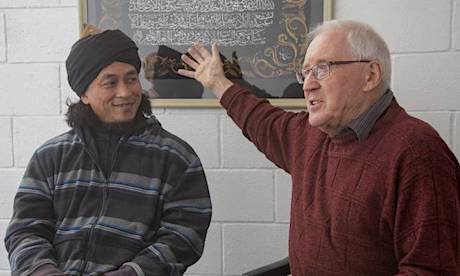Christian groups have reacted in vastly different ways in the aftermath of the Christchurch mosque attack – some reaching out with offers of support while others continue to see Islam as a threat.
Former Methodist leader Keith Rowe says church groups haven’t gone far enough in accepting Islam.
Overall, Rowe says, the Christian response was a hospitable one.
“Many embraced their Muslim neighbours in a way they hadn’t before,” he says.
“I think a lot of people in the church and the wider community crossed over the line from suspicion to embrace, and that was a pretty big step for them – given the bad press the Islamic faith in general gets.”
But he says the response has not gone far enough.
“It fell short of … celebrating and welcoming the Muslim presence in New Zealand.
“It didn’t acknowledge any Christian complicity in the perpetuation of Islamaphobic attitudes across the centuries.
“And it didn’t look forward to working together with the Muslim community for the common good.”
Rowe believes Christian churches of all types need to get over their view that they alone have access to truth.
Some of the more fundamentalist branches of Christianity have reacted angrily to the outpouring of support for Islam after the Christchurch mosque attack.
They are concerned that acceptance is the first step on the way to the “deletion” of the Christian God, the rise of Islamic radicals and eventually the implementation of Sharia law in New Zealand.
Rowe’s story demonstrates how fear and suspicion can be overcome by personal contact.
In Sydney he became involved in Christian-Muslim relations while working at a parish next to Al Faisal College in Auburn.
“I developed a deep friendship with the director there.”
Over the next few years, he developed Christian theology and practice for inter-faith engagement.
He wrote a book called Living With the Neighbour Who is Different, organised a gathering of imams and church ministers from across Sydney and visited Saudi Arabia with a Muslim group.
Source
